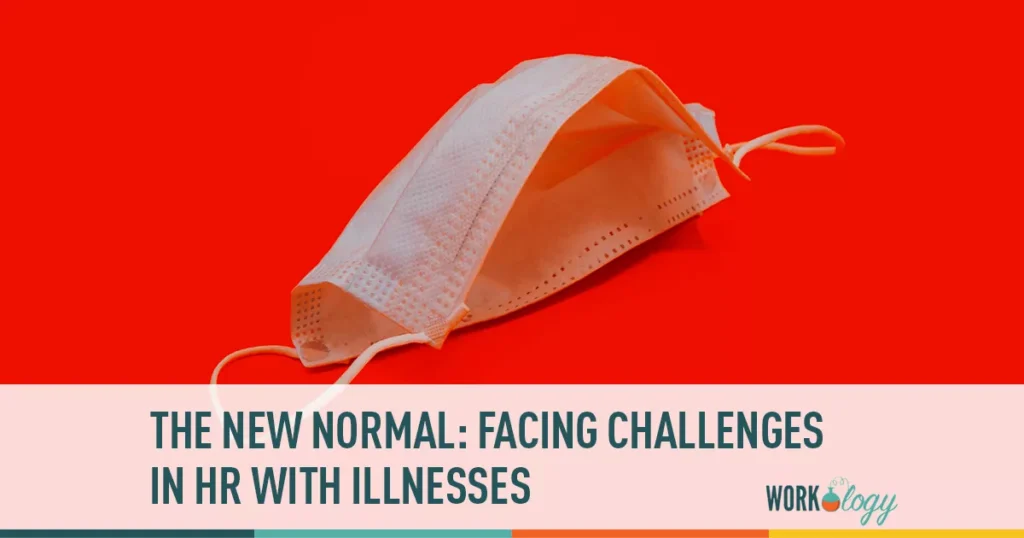Although we are experiencing the worst plague that any of us have ever seen, there is still the reality that other “killer” diseases could also exist simultaneously. We could catch the virus, so for “high risk” people, like me, that is scary. However, life does go on for us, which includes having those other major illnesses. Let’s not be naïve about that.
The World We Now Live In… The New Normal… Your Challenges in HR With Illnesses
First let’s take a look at Cancer. More than 1.7 million new cancer cases were expected to be diagnosed in 2019. Cancer is the second most common cause of death in the US, proceeded only by heart disease.
Survival varies greatly by cancer type, as well as stage and age at diagnosis. Also, it is estimated that 2 out of 3 men and 1 out of 3 women contract some type of cancer in their lifetime. But, the great news is that between 50%-60% live. ** (All above stats from the American Cancer Society.)
The important thing to note, from my perspective is that last sentence. I couldn’t find direct statistics, but the estimate is that about 40% of those people go to work. 40% of the workplace is constituted by people (or their family) members with cancer. Throw in other deadly and chronic illnesses and the numbers soar.
So, I share this with you because all of these people, whether in active stage or in remission, Go To Work! This is where you come in.
You might want to consider what to do, how to support all of the people in your company that is dealing with significant illnesses, e.g. those diseases that threaten the lives of your employees. So, that would be heart disease, cancer, autoimmune issues, liver and kidney issues, melanoma, ALS, Parkinson, COVID, etc. We could, actually even include mental illness and addictive disorders as well. Your reach out is huge and you are in a position to truly make a difference with your people.
Your company most likely has an employee assistance program that has a contractual agreement to offer their services. They usually allow up to 6-8 counseling sessions to help people make some progress with their issues of concern. They are often very helpful and very important service. They help you stabilize and then suggest outside therapists to continue with should that be necessary or desirable.
You most likely also have wellness/ fitness options, nutrition programs being available too. In the end, all of these save your company money, while keeping people healthier. So, it’s a great call and a great benefit.
But, now, with Covid19/ the “plague” as I call it, there is more that is needed.
People come to work or work from home and they are the lucky ones. Or, many of the people who were working with you may have gotten the virus or lost a loved one from the virus. Other scenarios are that your business is not a business that can withstand the amount of time that this virus is working it’s way out of our lives throwing them in into an incredible financial whirlwind. Maybe they have even had to let many people go. In other words … everyone is impacted. Period.
So, how do you even continue to meet their needs for counseling and other issues/
As you untangle how you, as an HR professional might be able to pull in the spending, what do you keep and what do you suggest stopping to offer? It won’t be an easy decision to make.
Here are some suggestions:
1. If people are quite ill or feel the need to quarantine at home – please continue to keep them on the payroll for as long as you can. Or, let them be part of the team that works from home.
2. IF someone doesn’t have the physical stamina to commute and to be around people, definitely allow them to work from home.
In both of these cases, I suggest other options as well:
Allow them the connection to the EAP for mental health concerns. Also, let them work with therapists that specialize in Grief and Loss and Anxiety.
3. For people who already (as in before Covid) had a diagnosable illness as stated above, e.g. cancer, heart disease, MS, etc… allow them the option to have people that specialize in working directly with them and how to combine their diagnosis, and all that is limiting, with the realities of their everyday work concerns.
There are many more things that I could suggest … but common sense will lead you.
So, then there is you ..the HR professional. You often interact with all of these situations. Make sure that you “take care of yourself so that you can take care of others!”
As I said earlier … healthy or not healthy … we still have to work. Very few of us are able to support ourselves without paychecks, but more importantly, we need to be role models for how to take care. Period
Ann Fry, MSW, PCC has been working within organizations as a change management specialist and a leadership coach. She is known for creating change through chaos. She disrupts systems so they can then reboot and shift. She is also a cancer survivor who coaches high-level individuals through their cancer (or other serious illness) issues as they struggle to balance work, family, and career. She recently launched http://www.workplacecancercoaches that offers coaching for employees with major serious illness. It is very new and in the process of launching. She is a regular blogger for Workology.








